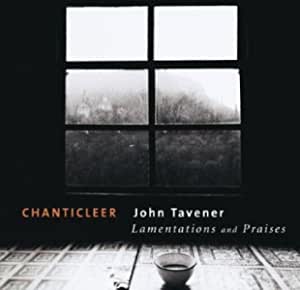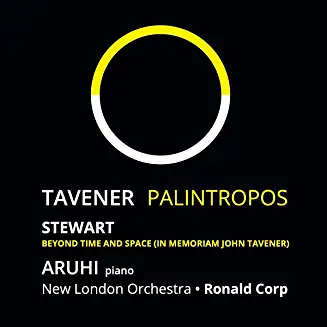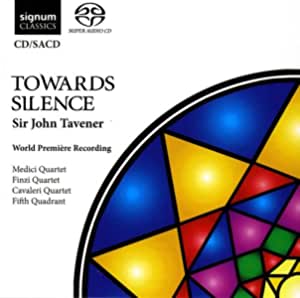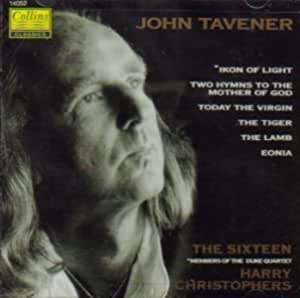JOE JENNINGS ON TAVENER'S LAMENTATIONS AND PRAISES
Michael Stewart: It is fairly unusual to record a commissioned work before its first ‘live’ performance. Could you explain the decision to do so with this particular work?
Joe Jennings: There are so many hidden aspects with birthing a new piece, many of which do not present themselves until the performances. I think this is especially true when working on a dramatic work such as Lamentations and Praises. Trying to get a feel for the flow and the timing and trying to get a feel for the dramatic and have it come across on the recording has been a particular challenge. Combined with the adjustments and changes that are inevitable in preparing a new work it was decided to do this recording before the first “live” performance and it also provided us with the opportunity to release the CD in conjunction with the world premiere “live” performances.
M.S. How have Chanticleer coped with some of the demands that Tavener places on the singers in Lamentations and Praises?
J.J. The most challenging aspect of this piece was that it was an amalgam of styles. As John Tavener indicates in the score “The singing must be Orthodox Byzantine in style”. He also advises that the performers consult a Byzantine Psaltis to help achieve the style, microtonal inflections and the breaks in the voice that add pathos in Eastern singing. Coupled with that there is also the traditional Western choral ideal. Finding the right balance was not an easy undertaking. To get singers schooled in the traditional Western style of singing to move towards the Byzantine was probably the greatest technical and aesthetic undertaking that we have been faced with in preparing this piece. Trying to execute and master the microtonal inflections and have the “breaks in the voice” sound convincing is not something that is quickly achieved – it takes some time to be comfortable with it, and each singer must develop his own style within the style.
M.S. And are there challenges beyond the technical?
J.J. In doing a new work by John Tavener, for me there is the comforting element of the familiar. We have performed several of his works, we know his harmonic language, he is very consistent. We just have to be ready to go to that intensely spiritual place. Our body rhythms must slow down and our focus must really be narrowed down if we ever hope to reach the essence. I think that is one of the great things about John’s music and one of the things that gives it such appeal, it is deceptively simple and devoid of trappings. It goes way below the surface to that place of calm and assurance and faith that exists in all of humanity. For some of us that place is readily accessible, the pathway is clear. For others, this is not quite so, and a clearing of the way has to take place This piece, as with all of Tavener’s music, is more about feeding and nourishing the soul than titillating the senses.
Michael Stewart / Joe Jennings



